Desperate search for survivors in rubble of Turkish apartment building
Fox News' Greg Palkot reports from Kahramanmaraş as rescuers battle bitter temperatures to save earthquake victims.
The earthquake in Turkey and Syria has killed more than 11,000 people, making it the deadliest seismic event in more than a decade.
Turkey’s disaster management agency said the country’s death toll passed 8,500. The Syrian Health Ministry said the death toll in government-held areas has climbed past 1,200, while at least 1,400 people have died in the rebel-held northwest, according to volunteer first responders known as the White Helmets.
More than 30,000 people have been injured from the Monday morning 7.8 magnitude earthquake, and the death toll is expected to continue to rise as rescue workers search for survivors underneath the rubble.
The quake is the world's deadliest seismic event since 2011, when a 9.0 magnitude quake off the northeast coast of Japan triggered a tsunami, killing nearly 20,000 people.
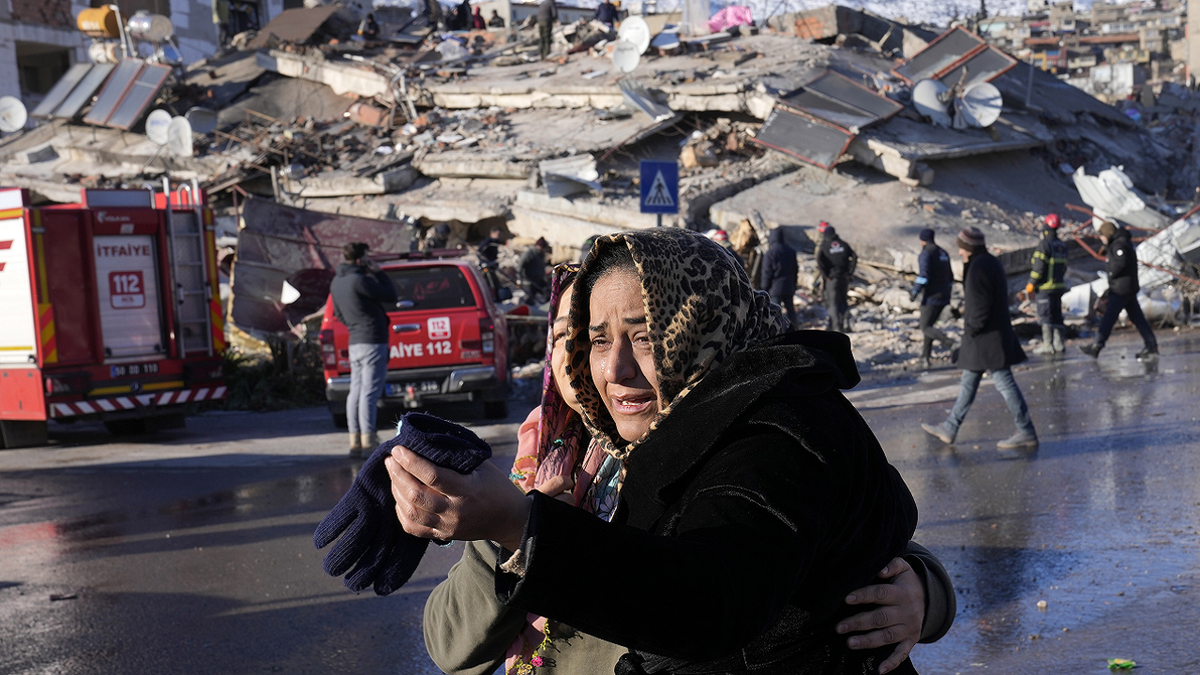
Two women cry in front of a destroyed building in Kahramanmaras, southern Turkey, on Wednesday, Feb. 8. (AP/Hussein Malla)
Neither Turkey nor Syria provided figures for the number of people still missing Wednesday as Pope Francis asked during his weekly general audience for prayers and demonstrations of solidarity.
Turkish President Recep Tayyip Erdogan will travel today to the town of Pazarcik, the epicenter of the quake, and to the worst-hit province of Hatay. He has faced calls to send more support to the disaster areas. The country now has roughly 60,000 aid personnel in the quake-hit zone, but many people are still awaiting help since such a wide area was impacted.
The quake toppled thousands of buildings, and frigid temperatures and ongoing aftershocks have complicated rescue efforts.
Search teams from more than two dozen countries have been sent to help Turkey's emergency personnel, and the country has received numerous promises of aid.
While concerns are rising for those still trapped, Polish rescuers working in Turkey said they had pulled nine people alive from the rubble so far, including parents with two children and a 13-year-old girl from the ruins in the city of Besni.
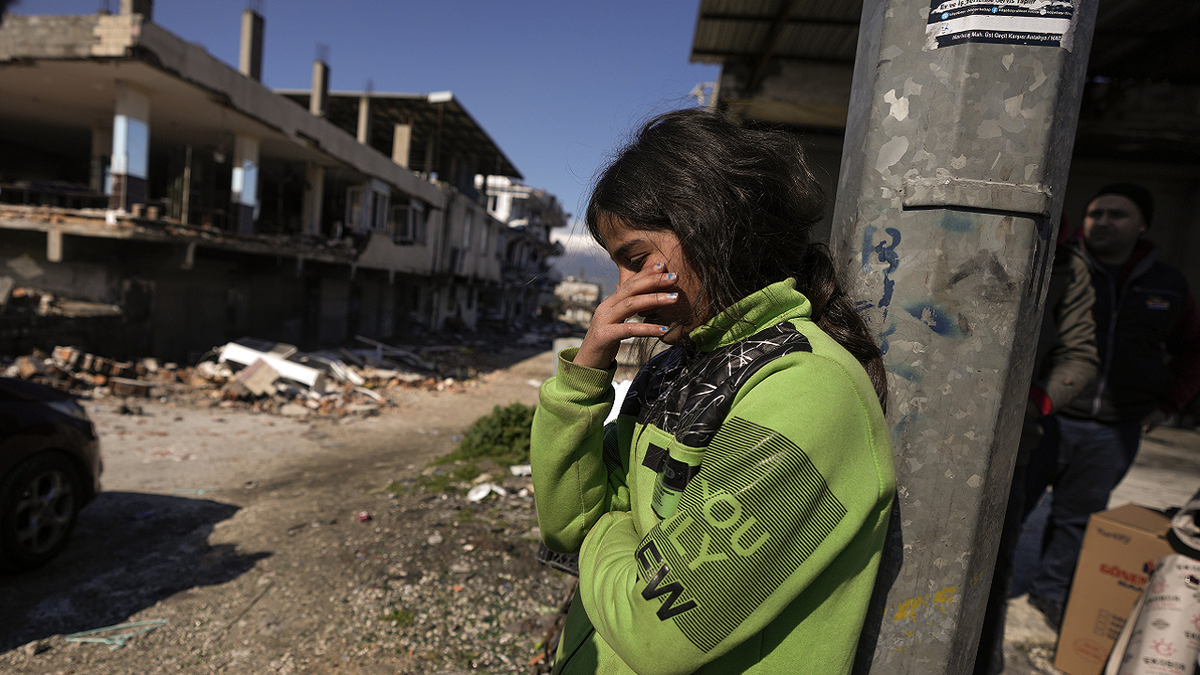
A girl stands next to destroyed buildings in Antakya, southern Turkey, on Wednesday, Feb. 8. (AP/Khalil Hamra)
Nearly two days after the quake, rescuers pulled a 3-year-old boy, Arif Kaan, from beneath the rubble of a collapsed apartment building in Kahramanmaras, which is not far from the epicenter.
CHRISTIAN ATSU, GHANA SOCCER STAR, FOUND ALIVE IN TURKEY EARTHQUAKE RUBBLE
With the boy's lower body trapped under slabs of concrete and twisted rebar, emergency crews lay a blanket over his torso to protect him from below-freezing temperatures as they carefully cut the debris away from him, mindful of the possibility of triggering another collapse.
The boy's father, Ertugrul Kisi, who himself had been rescued earlier, sobbed as his son was pulled free and loaded into an ambulance.
In Syria, the quake knocked over thousands of buildings in the latest devastation to a country dealing with a 12-year civil war and refugee crisis.
On Monday afternoon in a northwestern Syrian town, residents found a crying newborn still connected by the umbilical cord to her deceased mother. The baby was the only member of her family to survive a building collapse in the small town of Jinderis, relatives told The Associated Press.
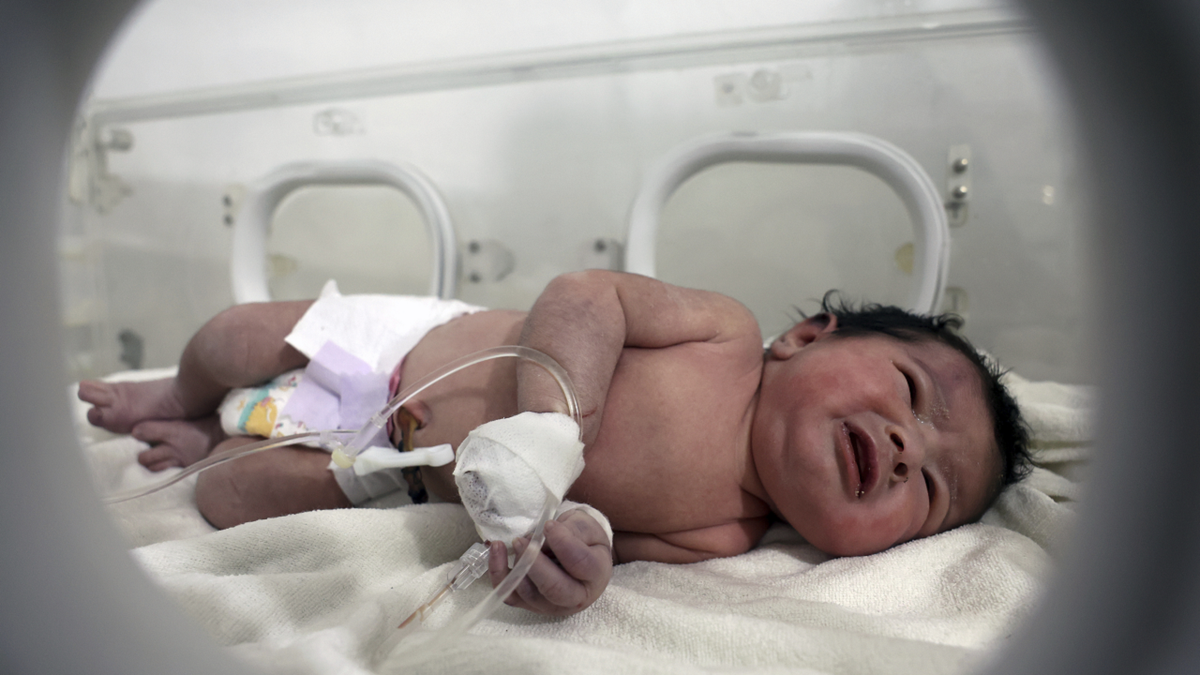
A baby girl who was born under the rubble caused by an earthquake that hit Syria and Turkey receives treatment inside an incubator at a children's hospital in the town of Afrin, Aleppo province, Syria, on Tuesday, Feb. 7. (AP/Ghaith Alsayed)
Volunteer rescue organization White Helmets says six people, including four children, were pulled out of the rubble alive during overnight rescue operations in rebel-held parts of northwest Syria.
Turkey is home to millions of refugees from the war. The area in Syria impacted by the quake is divided between government-controlled territory and the country’s last opposition-held enclave.
Syrian Cabinet minister Hussein Makhlouf told reporters Wednesday that 180 shelters have been set up in northern Syria to house some of the 298,829 people who have been displaced in the wake of the earthquake.
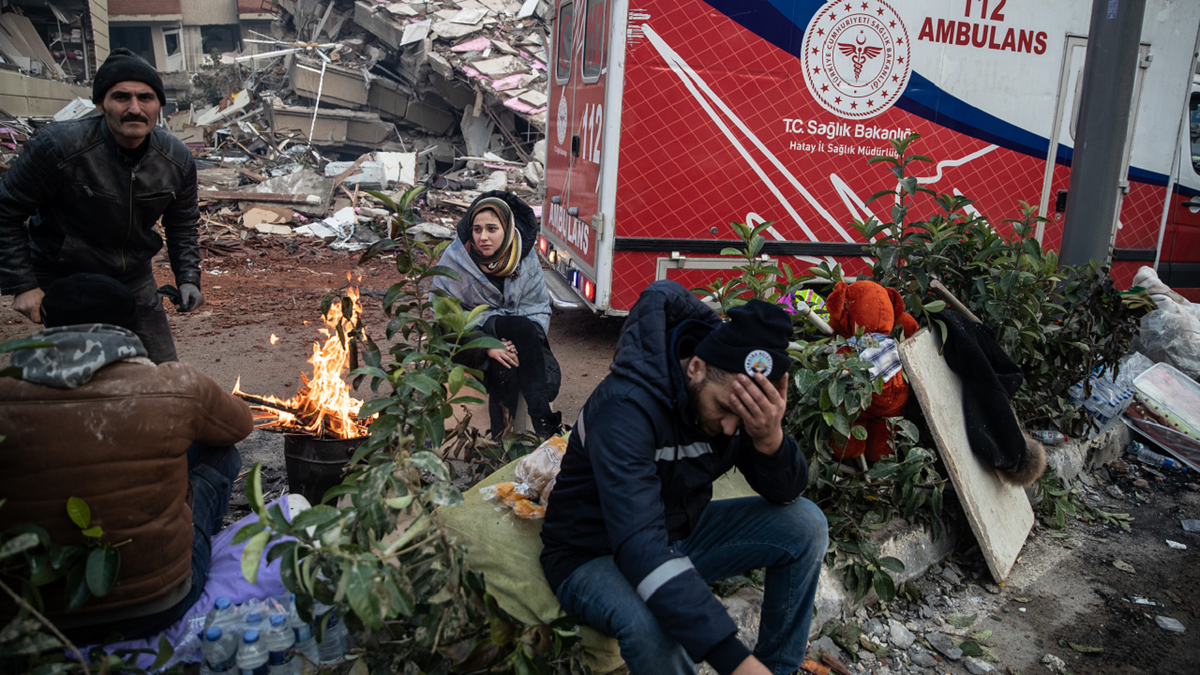
People wait for news of their loved ones on Wednesday, Feb. 8, believed to be trapped under a collapsed building in Hatay, Turkey. (Burak Kara/Getty Images)
TURKEY EARTHQUAKE CAUSES MASSIVE SHIPPING CONTAINER FIRE CAUGHT ON VIDEO
According to Adelheid Marschang, a senior emergencies officer with the World Health Organization, as many as 23 million people could be affected in the region struck by the quake.
Many survivors in Turkey have had to sleep in cars, outside or in government shelters after the quake forced them out of their homes.
"We don’t have a tent, we don’t have a heating stove, we don’t have anything. Our children are in bad shape. We are all getting wet under the rain and our kids are out in the cold," Aysan Kurt, 27, told the AP. "We did not die from hunger or the earthquake, but we will die freezing from the cold."
Erdogan said 13 million people in Turkey have been affected by the disaster. He declared a state of emergency in 10 provinces.
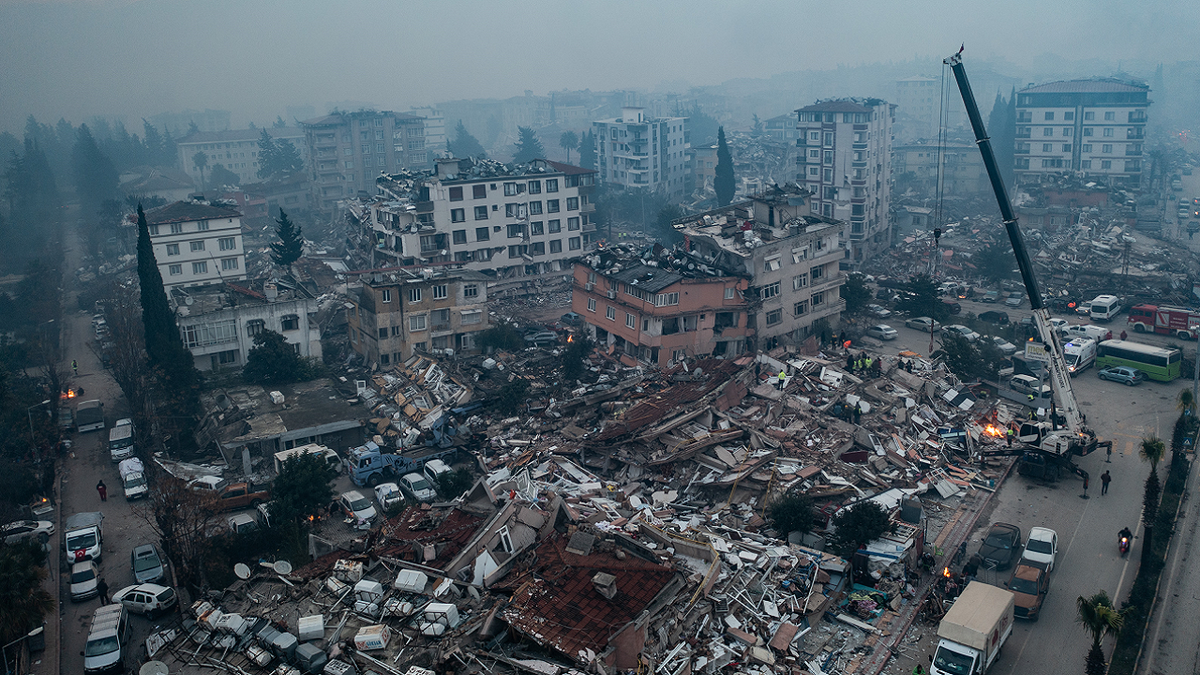
An aerial view shows rescue efforts ongoing Wednesday at the scene of collapsed buildings in Hatay, Turkey. (Burak Kara/Getty Images)
More than 8,000 people have been pulled from the debris in Turkey, and roughly 380,000 have taken refuge in government shelters or hotels, according to authorities.
Turkey’s disaster management agency said Wednesday that the recovered bodies of people who died in the earthquake but cannot be identified would be buried within five days even if they remained unnamed.
The agency, known as AFAD, said unidentified victims would be buried following DNA tests, finger printing and after being photographed for future identification.
The move is in line with Islamic funeral rites which require a burial to take place as quickly as possible after a person’s death.
The region sits on top of major fault lines and is frequently shaken by earthquakes. Some 18,000 were killed in similarly powerful earthquakes that hit northwest Turkey in 1999.
The Associated Press contributed to this report.











































